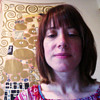Posted 8 years ago
 artfoot
artfoot
(367 items)
In 1913, Italian artist Luigi Russolo wrote a manifesto entitled "The Art of Noises". This treatise entertained the idea that the industrial revolution had created a new vocabulary of sound that could, and should, be incorporated into the sounds of modern music. To this end, Russolo built his own "instruments" and staged a concert. The audience responded with vegetables, rocks, and bottles.
This was possibly the beginning of what I call "difficult listening". Russolo's performance may not have achieved its desired result but his theory was not unnoticed. Noise began to appear in the works of composers like Stockhausen and Varese. In the 1940s, John Cage emerged as the leading theoretician of noise and spontaneity. He felt that all sound could, and should, be used creatively. To this end, he directed "happenings" and wrote pieces for silence. Cage is still viewed as a rebel but noise and spontaneity have become more and more prevalent in the music of today.
Moving forward to 1966, two items that brought this musical change into my life.
Spontaneous Sound was the name given to live presentations given by Christopher Tree. Tree had an array of gongs, chimes, bells, and shawms that he would use to create an exciting atmosphere for his often psychedelicized audience. It is not difficult to listen to - it appeals on a primitive genetic level - but it is difficult to musically describe. This record was sold at his performances.
Around the same time, Contact High by The Godz was released from the Lower East Side of New York City by Esperanto Records. Esperanto had a history of spoken word poetry and avant-garde jazz, and was the label of The Fugs ( a group with marginal musical capabilities), but this record was a stretch even for them. The Godz made celebratory noise that sounded sort of like music.
There have been several contenders to be the first to bring noise to rock 'n' roll - for me, it was The Godz.
Since I no longer own a copy of "Contact High" and have copied the images from https://www.discogs.com/search/ - let me put in a plug for their excellent research site and hope my usage is educational enough they won't complain.














![Fleetwood Mac - Rumours [New Vinyl LP]](https://i.ebayimg.com/images/g/cOEAAOSwXh9m4irt/s-l225.jpg)
![The Cranberries - Dreams: The Collection [New Vinyl LP] UK - Import](https://i.ebayimg.com/images/g/O0MAAOSwSa9eczk5/s-l225.jpg)
![Led Zeppelin - Led Zeppelin IV [New Vinyl LP] 180 Gram, Rmst](https://i.ebayimg.com/images/g/AFAAAOSwZtRm4iC0/s-l225.jpg)

Wow, sounds great. Kind of like some of the Fluxus recordings ?I love the Fugs.
Yes rockbat, the Fluxus recordings were associated with John Cage.
Excellent! Was waiting for another entry in your 'Difficult Listening' category.
Thank you iggy.
Thank you Thomas - Spontaneous Sound preceded Pink Floyd by nearly a decade. Computers and other electronic effects brought an entirely different package of sounds to the table.
BTW - The first ever computer-generated piece of music (God Save the Queen) happened in 1948 - more about that in a future post.
Just to add to the previous comment - I know Pink Floyd was putting their act together in the mid-1960s as well and this sort of "noise" was being incorporated into the mix. Christopher Tree, by then, had been gathering instruments and giving concerts called "workshops" for several years. None of the sounds were electronic. His approach was more mystical than musical.
Thank you again Thomas, for getting me to spout off. I'm familiar with Pink Floyd but I can't say that I'm a fan. "See Emily Play" was catchy, but to me, it was all downhill from there. I actually walked out of a Pink Floyd concert once because it was more boring than watching paint peel. That may be rock 'n' roll blasphemy but give me Zappa any day.
great avant garde post! bravo!